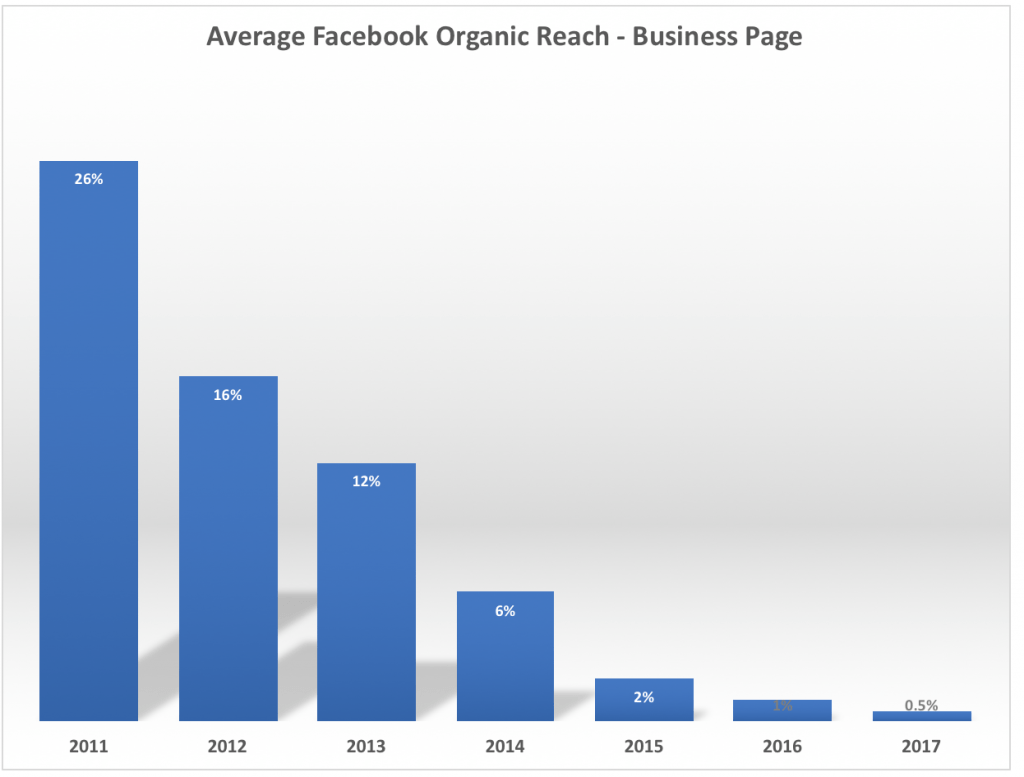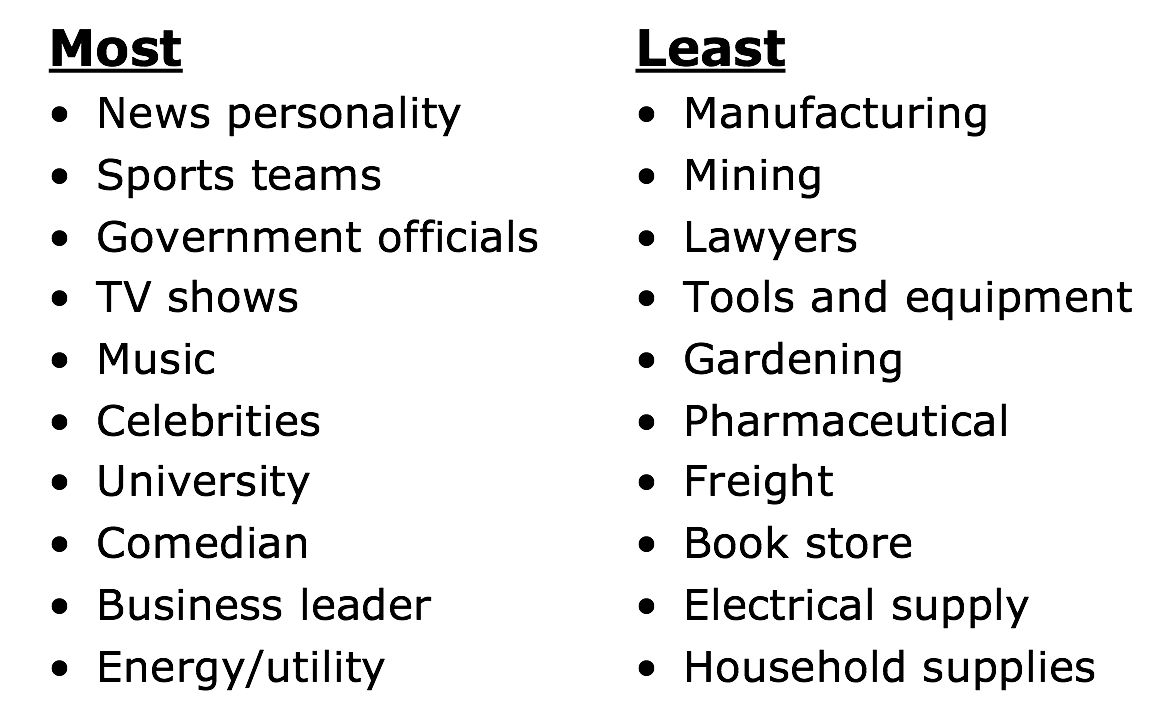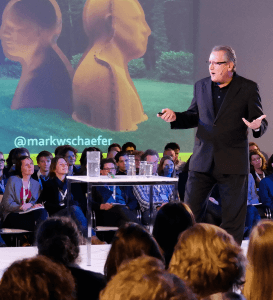
By Mark Schaefer
An open letter from Mark Zuckerberg announcing changes to the Facebook news feed was regarded as a bombshell by most social media marketing thought leaders.
Mike Stelzner called this the “end of days” for marketers, Jon Loomer referred to the market “hysteria” this is creating.
The fact is, this letter from Zuckerberg is cryptic and we truly have no idea on how this is going to impact businesses long-term. But I’m going to provide an argument as to why I think this “apocalyptic” vision of the Facebook marketing future is a vast over-reaction.
Let’s look at the data.
Organic reach is already dead.
Here’s a quote from Zuckerberg’s post: “We started making changes in this direction last year, but it will take months for this new focus to make its way through all our products.”
As a matter of fact, Facebook formally announced in 2015 that it would begin penalizing business pages and reduce their organic reach. This is simply a continuum of what we have been seeing from Facebook for years:

Source: Nielsen, Agora Pulse
We see in this chart that even if a business page was doing a super job with its content in 2011, only 26 percent of their followers would see its posts. Today, the organic reach for an average business is less than 1 percent.
So let’s be realistic. Posting content on Facebook doesn’t work for most businesses any way. Here is how I interpret the Zuckerberg letter: “We have been penalizing businesses for years and we’re going to keep doing it.”
The problem is, there are so many brands pumping content onto Facebook, the company has no choice but to ratchet it back to make the news feed usable. Ultimately, this is not a Facebook problem. It is a spammy marketer problem.
So the implication of this announcement is, if you knock it out of the park your content may reach 1 percent of your audience and if your content is not engaging, it will be zero. In reality, nothing has changed.
The winners will keep winning
Here is another quote from the Zuckerberg letter that is really non-news:
“As we roll this out, you’ll see less public content like posts from businesses, brands, and media. And the public content you see more will be held to the same standard — it should encourage meaningful interactions between people. For example, there are many tight-knit communities around TV shows and sports teams.”
This chart (source: Agora Pulse) shows the business page topics that receive the most and least organic reach on Facebook:

What we see here isn’t any surprise. The brand pages that are most conversational, like celebrities and sports teams, can receive huge organic reach of 30, 40, even 50 percent or more. Zuckerberg is telling us “this will continue.”
Brand pages on boring stuff like appliances and household supplies don’t get any engagement.That content does not work now and it won’t work in the future.
So I have to ask you … why is everybody in a panic? Zuckerberg is only reinforcing what we have already known for years. If you do a good job with engaging content … you’ll be in the news feed.
The enigmatic evolution
As I said at the top of the post, in truth, we really don’t know what the overall impact will be but as I’ve shown through data, I believe there is no reason to panic. I think the most interesting aspect of the whole Zuckerberg letter is trying to discern what Facebook is becoming … what is their strategy? I’m not sure they even know.
Here’s an example of what I mean.
In 2015 and early 2016, Facebook put a full-court press on mainstream publishers, encouraging them to post their stories in the news stream. Within a few months (June 2016) Facebook had completely flip-flopped and said the mainstream news was no longer desirable in the new stream. A company with a clear vision of its direction would not keep changing its course like this and jerking people around.
But another course change seems to be afoot. As I wrote recently, Facebook is under attack and it is going to have a softer, gentler presence or it is going to find itself under government regulation. And that would be a very bad thing.
Zuckerberg announced the goal of the company is “bringing people closer together.”
I have no idea what that means. What is the measure of success? How will we know if you and I are closer this year versus last year via Facebook?
The public company’s goal MUST BE THIS: “Make more money every quarter.” So in essence, the Facebook strategy is: “Make more money every quarter by bringing people closer together.” Stay tuned on that one.
The new rules of social media marketing
If you are an effective and experienced social media marketer, you already know by now that there is no value in simply publishing content on Facebook … or anywhere else. The economic value of content that is not seen and shared is zero.
Yes, we need content. Yes, we need an audience. But as I describe in my book The Content Code, there is now a third priority: transmission. Marketers have to develop a competency on getting content to move.
What I explained in my book is exactly what Facebook is telling us now: The only content that matters is the content that people engage with and share.
Here is the business case for Facebook in one sentence: “Come waste time with me.” Why would a person waste time with your content on Facebook? If you can’t answer that question, you will have no hope of Facebook marketing success.
So in conclusion, stay calm and carry on. Nothing has really changed. Your strategy today is the same as it was yesterday: Content has to matter.
 Mark Schaefer is the chief blogger for this site, executive director of Schaefer Marketing Solutions, and the author of several best-selling digital marketing books. He is an acclaimed keynote speaker, college educator, and business consultant. The Marketing Companion podcast is among the top business podcasts in the world. Contact Mark to have him speak to your company event or conference soon.
Mark Schaefer is the chief blogger for this site, executive director of Schaefer Marketing Solutions, and the author of several best-selling digital marketing books. He is an acclaimed keynote speaker, college educator, and business consultant. The Marketing Companion podcast is among the top business podcasts in the world. Contact Mark to have him speak to your company event or conference soon.
Illustration courtesy Flickr Creative Commons


